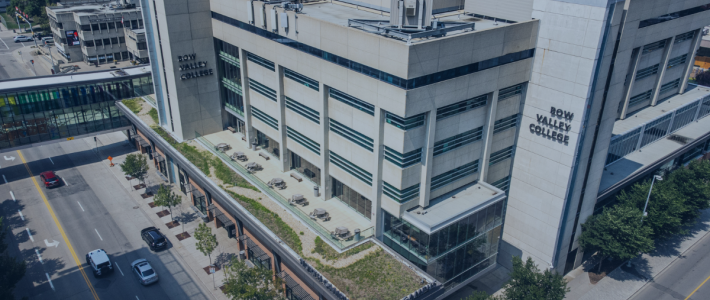Once a month, Le Devoir d’enseignement wants to offer rich contributions, whether from researchers and practitioners in the education sector or from others who have reflected on the state of the education system us.
“You have to change. » Not a day goes by without the college professor that I get this warrant to connect education even more than it already is with the job market and new technologies – especially to theartificial intelligencewhich is presented today as the panacea.
The world is changing, we are told, and our students will thrive in a job market filled with machines and robots. So we would have no choice but to prepare them now by integrating these same tools into the classroom. Any resistance would be futile. Today I would like to argue that the future requires from us a perspective that advocates just the opposite.
However, the sociologist and philosopher Michel Freitag had already warned us, at the beginning of the 2000s, about the need to resist these adaptive pressures by raising the dangers they could represent for education as well as society.
It has already been said that education must quickly keep up with the “weak” so-called “needs of society”, a kind of screen word intended above all to meet the requirements of capitalist industry and Name technological innovations, always marked as so many new panaceas.
According to Freitag, we then put aside any debate about the nature of education, society or civilization that is or should be. There is no need to ask ourselves what values, what goals or what humanitarian concept should be the basis of education if it is sufficient to model it on the movement, still accelerating, of the technico system – economic.
As Freitag, and even Marcel Rioux, clearly saw in the 1960s, this essentially meant the Americanization of our education system by aligning it with the ideology that fueled America’s economic, technological and cultural imperialism: a new school ” technetronics” adapted to the needs of cyber capitalism. .
So we have to unfortunately recognize that most of the changes or reforms that have been implemented in the last decades in the world of education are the result of a control relationship – and a project made by the dominant class – which aims to subordinate institutions and societies to the requirements of global capitalism.
Freitag said that there are always people who are “committed to running to support the strongest, shouting that may be right” and who put “all their energy” into being tells us that the colonization of schools with commercial logic and with machines. could, in the end, be a good adventure…
It is, unfortunately, only a type of Stockholm syndrome that gives the restriction placed on the appearance of permitted movement. Perhaps it is, as Günther Anders would say, the feeling of being inferior to technology that causes shame, making it desirable for himself to act in favor of the machine in self-enhancement. development?
Social flattening
The enthusiasm shown in accepting it, however, does not change the nature of the sovereignty which forces us, according to Freitag, to abandon “what we know as who will be and how we will be together” to impose on ourselves what he needed. “accept it to be what is needed.” In short, accept the melting of concrete society and culture, but also the condition of civilization, let’s say, “humanist” and republican.
This, for the benefit of supporting education only for an economic system that has freed itself from all social norms to focus only on the accumulation of unlimited value, without regard to consideration any other. All at a time when societies, on the other hand, should be questioning the best path to take, in education in general, to ensure the future of the world against crisis ecology.
This would involve rethinking what nature is, but also culture, society and education. But, on the other hand, we are asked not to think and throw ourselves into the extreme, by removing the power to decide in the hands of the economic and technology that we now rely on to drive progress. of the world.
Freitag remembers that, from the Greeks to the Enlightenment, it was never a question of society being reduced to what was a raw or empirical reality. So everyone was put in tension with a situation that made them want to rise to “what we call”. The same goes for education, which has an incomprehensible history outside of reference to the humanistic vision that transcended or embodied it. all educational projects at special associations.
It was never a question of creating students who were adapted to production or the immediate environment, but to remind them of past ideals that surely lost, and being the keys to a “future created as the fulfillment of a ‘promise from the past’.”
CEGEPs are an interesting example, because we try to think of them as parallel places between professional training and the spread of humanistic culture, as institutions where, in the words of Guy Rocher, there should be a balance between culture and technical .
Postmodern diffusion
This humanistic educational and civilizing situation is today being dismantled to “turn it over to technology and the economy,” Freitag tells us.
Disseminating any reference to what civilization, society, or education can lead to, leads to binding the latter to the same quest for the infinite expansion of profit or power in the global market, as well as the “fetishization of technology and the virtual universe”. and cybernetics. In short, the desire to transform education into a market and the management of tools, which represents our new flat reality, this “desert of reality” which today seems to have replaced any excellent education is worthy of the name.
The movement that leads to the “great transformation” that Karl Polanyi spoke of – the one that made the economy detach itself from society and control it every other area of social practice – certainly going on in today’s societies. However, as Freitag recalls, the autonomy of the economy, at the time, provoked a double reaction.
First, at the institutional level, the formation of the modern nation-state gives politics the task of articulating, as a form of counter-pressure, the demands of solidarity or the common good, as was the case in social democracy, for example. Then, a cultural reaction, where the civil image of universal humanity is woven into the concept of citizenship and the country that each particular society accepts.
Our post-modern era is proceeding to dissolve these two “cases of the unification of normative and meaningful identity”, leading to a double collapse of politics and cultural conditioning. , any social, national or civil, each society becomes nothing more than a sub-system integrated into the megamachine of the global capitalist system.
This means that belonging to a concrete culture or society no longer counts because, in the neoliberal project, there is only the adaptation of individuals and old institutions according to the dictates of the economy that has become landlord now counts. As Gaston Miron says, “you disappear into density and undifferentiated number in the formless form” without meaning “reproduction together” anymore.
This is true for social life as a whole and clearly explains that education is also drawn into this movement where any reference to good high culture is eliminated, there is no leaving only the school to change in real time according to the needs of economics and technology. .
This means in particular that topics that do not seem to have a direct connection to the one-sided world of economics will be downgraded; it was even recently announced that artificial intelligence, because it automates language and thought, could go so far as to replace the role of an economist!
Deprived of a meaningful relationship with a political community or a culture, the individual finds himself trapped in a private life only where he can think, personally, that he is a thousand things, and, on an objective level , the former subject is reduced to complete helplessness against the impersonal mechanics of technico-economic systems, new cybernetic masters reducing us to the state of objects.
Michel Freitag’s analysis ultimately leads us to answer that no, we must not change education at all costs to the economy and to technology to the detriment of the relationship that it must first take place with culture, societies and civilizations. We must therefore reject the injunction to allow ourselves to be carried away into the removal of the economic and mechanical reality in order to reintegrate ourselves into the life of concrete societies.
A real “class struggle” is strained between two concepts of education, depending on whether it starts from a humanist or technocapitalist point of view. For his part, academic freedom, according to Freitag, no longer needs to be defined as “the freedom to think sheltered from the world”, but as “the freedom to act in the world according to think to prevent the dehumanization of the world , to promote. a fairer world.”
This is the place, the roots from which we should think about the future of education and society rather than giving up thinking about it and entrusting this work to automated systems which declares the double indifference of people and societies, replacing all ideality with the tyranny of the state. As Victor Hugo said, “the soul of man […] need the best even more than the real. It is through truth that we live; it is through the ideal that we exist.”
To suggest a text or to make comments and suggestions, write to Dave Noël at [email protected].
To watch the video
2024-11-09 05:23:00
#Education #adapt #techno #economy


